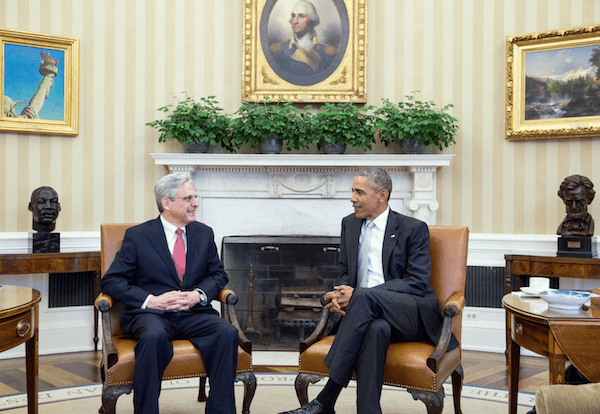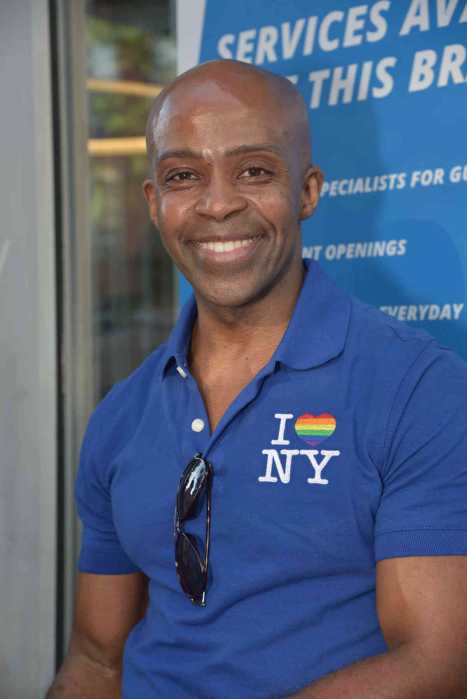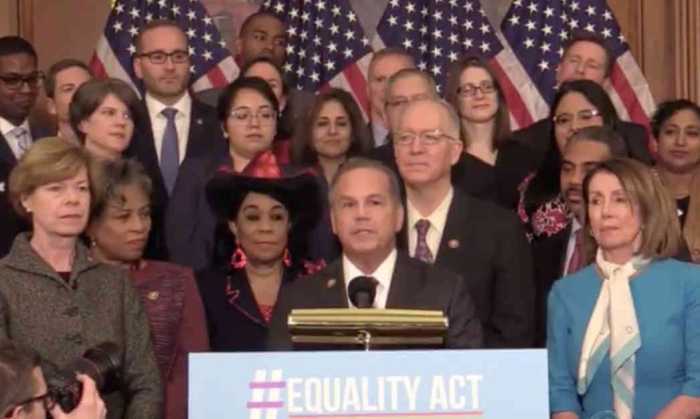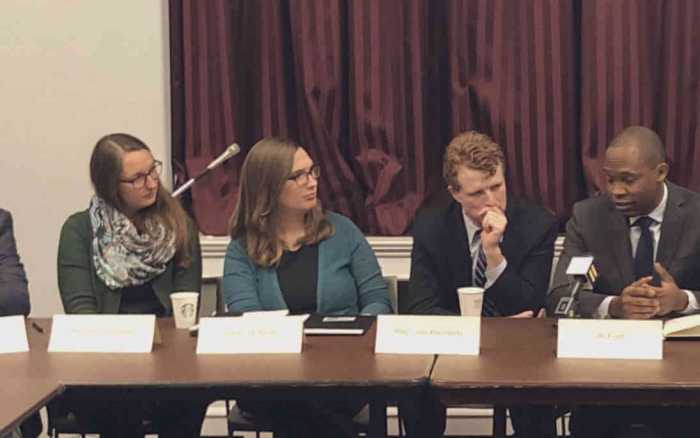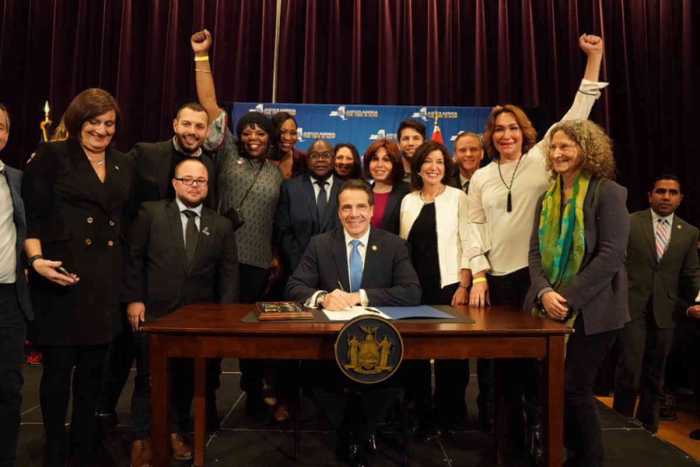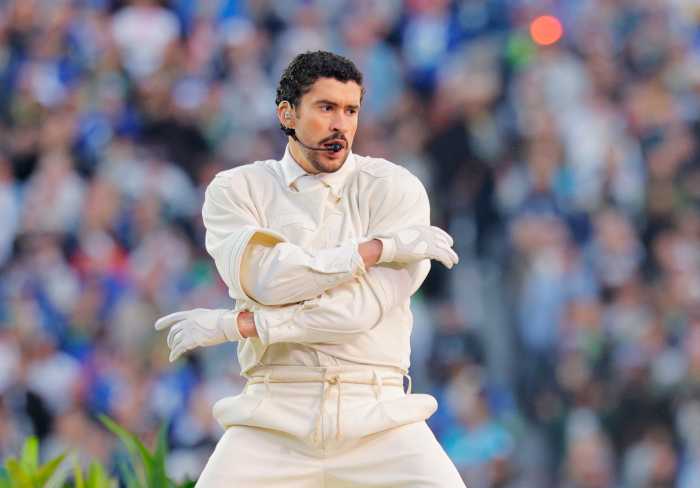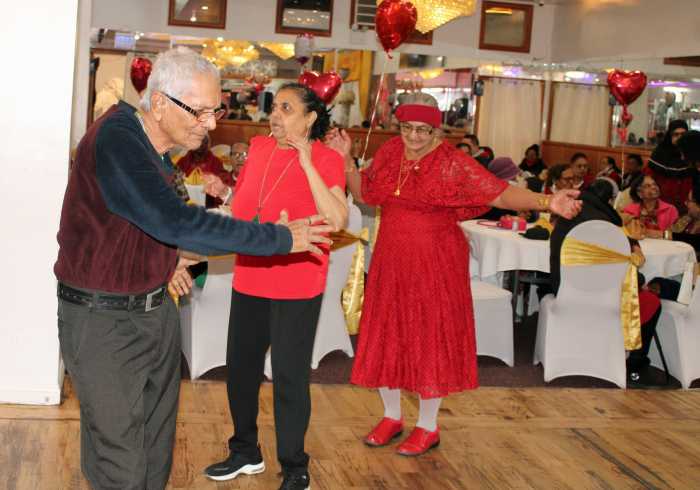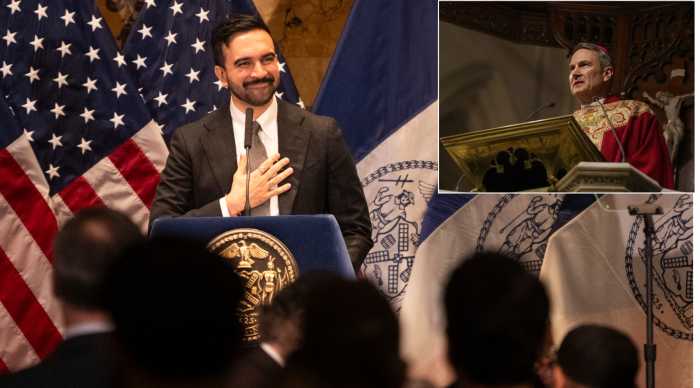Records from Merrick Garland’s nomination hearing for the federal circuit court in the District of Columbia show that he volunteered for a string of Democratic candidates beginning in the late 1970s, though his most significant federal government job began during the administration of President George H.W. Bush.
“I provided volunteer assistance on a Presidential Debate for President Clinton in October 1992 and for Michael Dukakis in October 1988,” Garland wrote in response to questions during his 1995 nomination hearing. “I did some volunteer work for Walter Mondale’s presidential campaign in 1983-84. As a college student, I worked two summers for the campaign of my then-congressman, Abner Mikva, in 1972 and 1974.” Mikva, a Chicago area Democrat, served eight years in the House.
Garland, now a nominee for the US Supreme Court, was nominated for the US Court of Appeals for the District of Columbia Circuit by President Bill Clinton. With Republicans then in control of the US Senate, his nomination was delayed for 18 months. He has served on that court for 19 years. He has little in the way of a record on LGBT issues, as the most important cases for the community have not gone through that circuit.
Though a supporter of Clinton, Dukakis, Mondale, his first big DOJ job came under George H.W. Bush
According to his résumé, he was an associate independent counsel from 1987 to 1988 on the federal Wedtech investigation. The Bronx company was suspected of public corruption and the investigation eventually reached into the Reagan administration, where Lyn Nofziger, who was Reagan’s press secretary when he was governor of California, and Attorney General Ed Meese were tarnished by it. Nofziger’s conviction on illegal lobbying charges was later reversed and Meese, who was forced to resign, was never charged.
Garland joined the US Department of Justice in 1989 as an assistant US attorney and continued working there until he joined the appeals court in 1997. At his 1995 nomination, he was a principal associate deputy attorney general working as chief of staff for Jamie Gorelick, a deputy attorney general. Garland mostly prosecuted drug, public corruption, and fraud cases, but he is best known for running the investigation into the 1995 Oklahoma City bombing. He was a special assistant to the US attorney general from 1979 to 1981.
In the late ‘70s, Garland clerked for US Supreme Court Justice William Brennan, who was among the most liberal members of the court, and Henry Friendly, a judge on the US Court of Appeals for the Second Circuit in New York.
In private practice at Arnold & Porter from 1981 until he joined the Justice Department, he handled civil and criminal defense matters. Garland was also a lecturer on anti-trust law at Harvard Law School, where he earned his law degree. Garland rose from associate to partner at Arnold & Porter, which is headquartered in Washington, DC.
In 1995, an eclectic group endorsed Garland in letters to the Senate committee that weighed his nomination. Supporters included Terry Branstad, then as now the Republican governor of Iowa, and Charles Cooper, then an attorney at Shaw, Pittman, Potts & Trowbridge, but best known to the LGBT community as the lawyer who defended Proposition 8, the California ballot initiative that banned same-sex marriage in that state. Prop 8 was overturned in a federal case in 2013. Cooper served in the Reagan administration. Garland was also supported by Michael P. Barnes, a prosecutor in Indiana and then the president of the National District Attorneys Association.
The Human Rights Campaign (HRC), the nation’s largest LGBT lobbying organization, and the National LGBTQ Task Force issued statements applauding the nominee and calling on the US Senate to confirm him. After the death of Antonin Scalia in February, Republicans announced that they would not even consider a nominee, leaving that to the next president.
The court currently has three justices who are entirely or almost always conservative, one who is often a swing vote, and four who are generally seen as more liberal. An Obama appointee could tip that dynamic in favor of the more liberal justices.
“Americans deserve a full Supreme Court bench, and President Obama’s nominee deserves a hearing,” Chad Griffin, HRC’s president, said in a written statement. “There is no doubt that Merrick Garland is a highly qualified candidate, and the Senate has a constitutional responsibility to give him swift and fair consideration. The Supreme Court has a sacred responsibility to uphold the rights of all citizens, and we must hold accountable any politicians who tamper with our nation’s highest court for their own gain.”
In a written statement, Rea Carey, the executive director of the Task Force, said “Judge Garland is a highly qualified candidate and now the US Senate must fulfill its obligation of holding a fair hearing and vote on his confirmation to the Court… We urge the Senate leadership not to play politics with our judicial system and move the hearing and voting process forward swiftly.”

